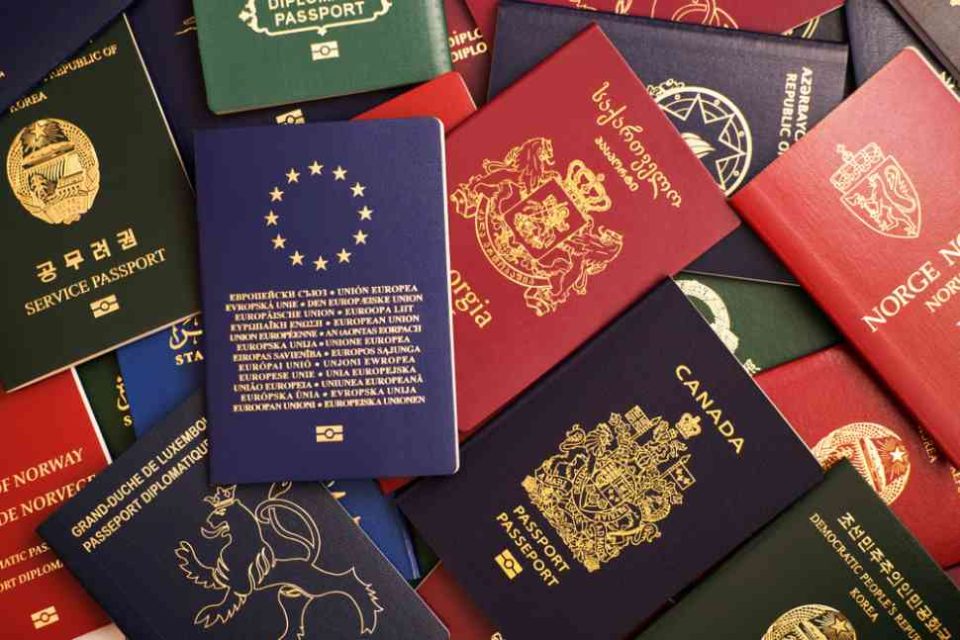What Makes Powerful Passports In The World

Every year, news flash lists of the world’s most powerful passports but do not always explain what makes them so. The Monegasque passport, for instance, is one of the exclusive passports in the world; it has been issued to a few thousand only, and most of them are high net-worth individuals (HNWIs). The idea to write an article on the indicators of powerful passports came a day ago when I was reading about Monaco’s Residence by Investment (RBI) program.
Japan, Singapore, South Korea, and the United States of America, among many others, regularly feature on the list. These countries enjoy an understandable degree of popularity among the wealthy. It does pique my interest and should pique yours as well, as to what factors make passports of these countries among the most valued and sought-after. In this article, you shall get some idea of how a passport’s strength is measured across the globe. Let us dive into it.
-
Income does play a role
It is not surprising to find countries with stronger economic foundations on the list. Countries with high Gross Domestic Product (GDP) will most likely enjoy greater global visa-free access. On the other hand, low or middle-income countries are on the lower run of these lists. Of course, income, per se, does not necessarily determine strength, but it is a vital indicator. High-income countries have shown more openness to throwing open their borders than low-income countries. In the top slots, you will find only high-income countries such as Japan, Singapore, Germany, Austria, and the United Kingdom. -
Law and Order
Observance of law and order is imperative in determining strength. Reasonable enough, countries with frequent internal strife, terrorist attacks, and crimes will not find it easy to secure visa-free access. If you have been reading about RBI programs, you might have come across countries that blacklist or put under exceptional due diligence certain countries. Countries such as Syria, Iraq, Afghanistan, Somalia, and Venezuela have fewer visa-free or visa-on-arrival privileges. Countries with stable political and legal order chart high up on the list. -
Democracy may not grant strength
It is quite a common belief that democratic nations enjoy stronger passports. While the belief is not without factual backing, democratic order does not necessarily grant strength. There are countries with no or highly regulated democratic orders with passports stronger than those with high democratic orders. A case in point is the United Arab Emirates (UAE), an autocratic country that enjoys visa-free access to 175 countries. Malaysia does not score high in terms of its democratic order but enjoys high visa scores. Countries such as India and Tunisia, whose democratic numbers are high, do not enjoy high visa scores. At least, comparatively. -
The wealthy take the bigger slice
Looking at the numbers, you can identify a pattern in geographical distribution. Passports from the wealthier west, especially from North America and the European Union, have countries with greater numbers of powerful passports. Yes, countries in Asia and other parts of the world have strong passports, but the numerical strength is quite disproportionate. With certain exceptions, countries or regions with poor socio-economic statuses fare poorly on the list. To put it simply, mobility is, for the most part, a privilege of the wealthy.
Have you read?
Why Employers Should Grant More Flexibility to Increase Quality of Work by Joe Mull.
Becoming an Expert Trust Builder by Larry Jacobson.
How your money story impacts the way you treat your finances by Clare Wood.
The Human Factor: The Post Covid Era of Leadership & Employee Loyalty by Deepak Ohri.
THE ROLE OF MINDFULNESS AND HOW IT PREVENTS BURNOUT by Melo Calarco.
Bring the best of the CEOWORLD magazine's global journalism to audiences in the United States and around the world. - Add CEOWORLD magazine to your Google News feed.
Follow CEOWORLD magazine headlines on: Google News, LinkedIn, Twitter, and Facebook.
Copyright 2025 The CEOWORLD magazine. All rights reserved. This material (and any extract from it) must not be copied, redistributed or placed on any website, without CEOWORLD magazine' prior written consent. For media queries, please contact: info@ceoworld.biz








